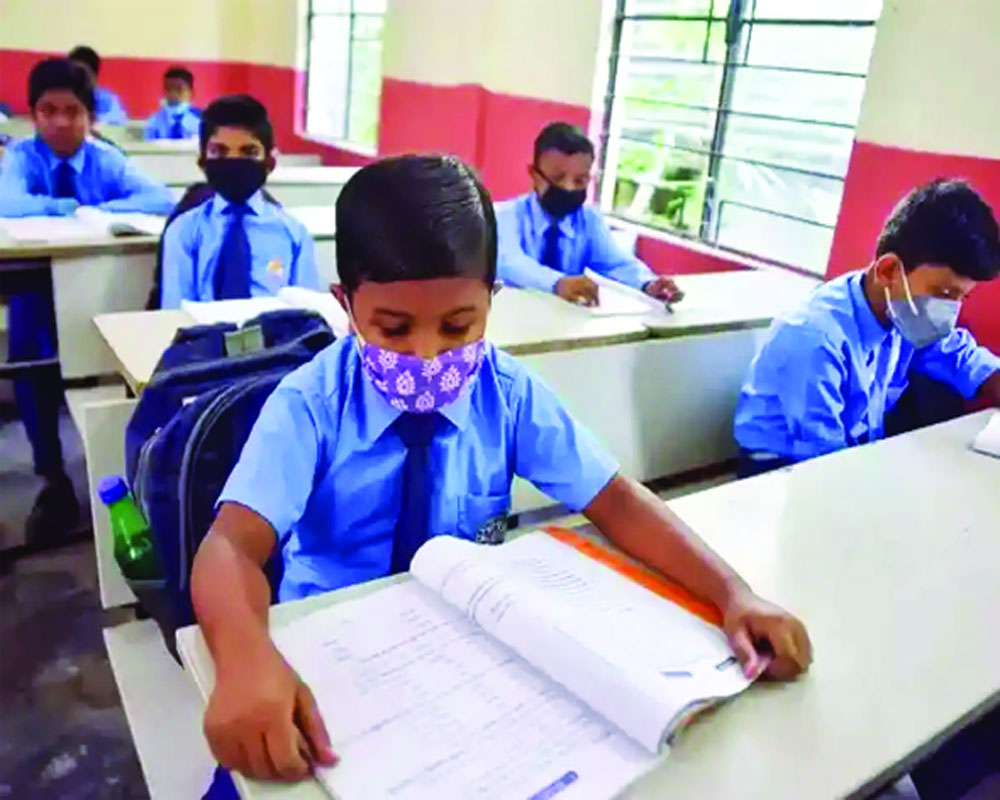India is yet to develop a comprehensive approach to school mental health promotion
Virtually every school in the country closed in March 2020, replacing in-person schooling with an online piecemeal education program. The learning setbacks over the last one and half years range from grave for all groups of students to catastrophic for poor children.
As a parent of two school going kids, from the start I have felt thatthe elected officials had been more concerned about reopening bars and restaurants than safely reopening schools that hold the futures of millions of children in their hands. This continues to be painfully evident as the states enter yet another pandemic school year without enforcing public health policies for post-Covid-19 mental wellbeing in in-person schooling. These policies were needed all the more when the highly infectious variants continue doing the rounds and the coronavirus seems likely to become a permanent feature of life which in most likelihoodwill push and pull the school life years to off and online mode every now and then.
Our kids have come out of the toughest times on the planet and have been doing the best they possibly can, physically and mentally, for the little time they have been on this earth. Now that the kids are returning to school, we must know that the role of schools need to be reimagined and enhanced. Schoolin a student’s life is not just academic, it is also about overall development -life skills, social and emotional intelligence. The Covid-19 control measures have taken a toll on thechildren, and we have the mental health statistics from WHO that paints a bleak picture.
WHO stated that a fifth of children and adolescents worldwide suffer from a disabling mental illness. Epidemiological studies from India suggest nearly 10-15per cent of those aged 16 or below suffer from a diagnosable psychiatric disorder. Suicide rates in Indian adolescents appear to be several-fold higher than anywhere else in the world accounting for a fourth of deaths in boys and 50-75 per cent deaths in girls aged 10-19 years.
Schools have an unprecedented opportunity to improve the lives of young people and the authorities should recognize this strength of schools as a change-maker in the young world. It is progressively becoming necessary to expand their role in providing services for overall development and wellbeing. Authorities governing schools must recognize and respond to the diverse mental wellness needs of the students accommodating both different styles/rates of learning anddifferent states of mental health they are in. Thereby ensuring not only quality education but guiding them develop mental resilience to counteract stressors of life; and these allshould be enabled through an appropriate curriculum,teaching strategies and resource support.
What students missed during the pandemic waves are not onlyacademic classes but, sports activities, field trips, music, while handling anxiety and economic precarity all throughout. Now, they must leap into the future, with the school’s help.We now need professionals or trained personnel to teach the children ways to improve their moods/minds -- practicing yoga, meditation andmost importantly teach them the concept and ways to bring in mental resilience to stressors of life. Schools should make available a space within the school premises where youngsters can immediately find a counsellor or trained adult to talk with who can identify problems such as depression and anxiety.
Schools have the opportunity to contribute to development of children and adolescents and provide scope for interventions at all levels of the schooling span. There’s a need to train man power for child/adolescent mental health at various levels of schooling especially the teachers and student peer groups on screening and preventive aspect of the mind management.
The government agencies and also NGOs have an important role to play in advocacy, awareness and comprehensive and continuous training of man power for the wellbeing of the future generation.
As a powerful socializing agent, schools play a crucial role in the transformation of cognitive, linguistic and psychosocial competencies and creating happy, healthy and harmonious schools for mental health wellness of kids.
Lastly, about policy and practices of mental health, India is yet to develop a comprehensive approach to school mental health promotion. Currently child mental health policy is non-existent in spite of the dire consequences of the pandemic times. The five-year plans, until recently, have set aside only a few crores for mental health with the child’s mental health promotion receiving a very low priority. Lot of complexities exist in multiplicities of laws related to mental health and the associated disabilities.
(The writer is an author and a doctor by profession. The views expressed are personal.


























